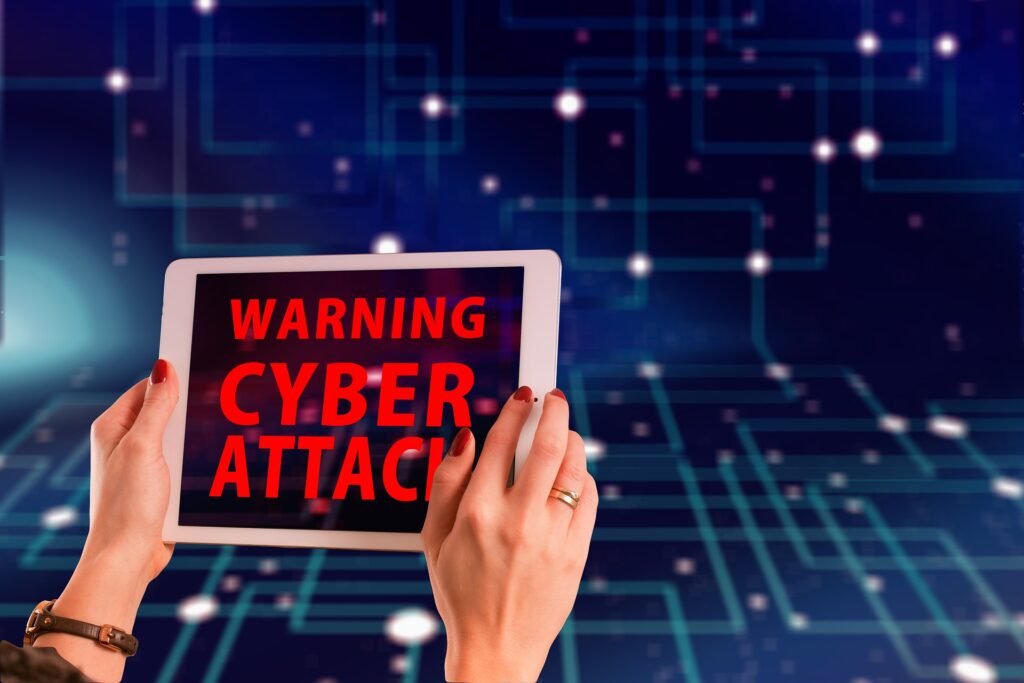As more and more of our lives move online, it’s become increasingly important to practice good “cyber hygiene” to protect our personal and sensitive data. Cyber hygiene refers to the practices and habits we adopt to ensure our digital security. By taking a few simple steps, we can significantly reduce the risk of cyberattacks and keep our data safe. In this blog post, we’ll explore some of the best practices for cyber hygiene that you should be following.

- Use Strong Passwords Using strong passwords is one of the most important things you can do to protect your data. A strong password is one that is at least 12 characters long, includes a mix of upper and lower case letters, numbers, and symbols, and isn’t easily guessable. Avoid using the same password across multiple accounts, and consider using a password manager to generate and store your passwords securely.
- Keep Your Software Up to Date Keeping your software up to date is another critical aspect of cyber hygiene. Updates often include important security patches that address known vulnerabilities. Make sure to update all of your software regularly, including your operating system, web browser, and any other applications you use.
- Use Two-Factor Authentication Two-factor authentication (2FA) is a security feature that requires you to provide two forms of identification to access your accounts. This could include a password and a unique code sent to your phone, for example. 2FA can significantly improve the security of your accounts and is available on many online services, including email and social media.
- Be Wary of Phishing Attempts Phishing is a type of cyberattack that attempts to trick you into giving up your personal or sensitive information. These attacks often come in the form of emails or messages that appear to be from a trusted source. Be wary of any unsolicited emails or messages that ask you to provide personal information or click on a link. Always double-check the sender’s email address or website URL, and never provide personal information unless you are sure it is legitimate.
- Use Antivirus Software Antivirus software is designed to detect and remove malicious software, including viruses, spyware, and malware. Make sure to install and regularly update antivirus software on all of your devices, including your computer, phone, and tablet.
- Regularly Backup Your Data Regularly backing up your data is an essential part of good cyber hygiene. It ensures that you can still access your important files and documents if your device is lost, stolen, or damaged. Make sure to backup your data to an external hard drive, cloud storage service, or another secure location on a regular basis.
- Limit Your Exposure to Public Wi-Fi Public Wi-Fi networks can be convenient, but they can also be a significant security risk. Hackers can easily intercept your data and steal your personal information when you connect to an unsecured network. Whenever possible, avoid using public Wi-Fi networks, and use a virtual private network (VPN) when you must connect to them.
- Practice Safe Online Shopping Online shopping has become increasingly popular in recent years, but it can also be a target for cybercriminals. When shopping online, make sure to only use reputable websites that use encryption to protect your data. Avoid clicking on links in unsolicited emails or messages and never provide your credit card information over an unsecured connection.
- Educate Yourself on Cybersecurity Best Practices Staying up to date on the latest cybersecurity threats and best practices is crucial for maintaining good cyber hygiene. Take the time to educate yourself on common cyber threats, such as phishing and malware, and learn how to protect yourself against them. You can find many resources online, including cybersecurity blogs, online courses, and webinars.
- Monitor Your Accounts for Suspicious Activity Regularly monitoring your accounts for suspicious activity is an essential part of good cyber hygiene. Set up alerts on your accounts to notify you of any unusual activity, such as logins from unfamiliar locations. If you notice any suspicious activity, take immediate action to secure your accounts, such as changing your password or contacting your bank.
Conclusion
In conclusion, good cyber hygiene is essential for protecting your personal and sensitive data online. By following these best practices, including using strong passwords, keeping your software up to date, and using two-factor authentication, you can significantly reduce the risk of cyberattacks. Remember to regularly backup your data, limit your exposure to public Wi-Fi, and practice safe online shopping. Educate yourself on cybersecurity best practices and monitor your accounts for suspicious activity to ensure that your digital life remains secure.
References
- Sun, C. C., Hahn, A., & Liu, C. C. (2018). Cyber security of a power grid: State-of-the-art. International Journal of Electrical Power & Energy Systems, 99, 45-56.
- Cavelty, M. D. (2010). Cyber-security. In The Routledge handbook of new security studies (pp. 154-162). Routledge.
- Thakur, K., Qiu, M., Gai, K., & Ali, M. L. (2015, November). An investigation on cyber security threats and security models. In 2015 IEEE 2nd international conference on cyber security and cloud computing (pp. 307-311). IEEE.
- Kaur, J., & Ramkumar, K. R. (2022). The recent trends in cyber security: A review. Journal of King Saud University-Computer and Information Sciences, 34(8), 5766-5781.
- Von Solms, R., & Van Niekerk, J. (2013). From information security to cyber security. computers & security, 38, 97-102.